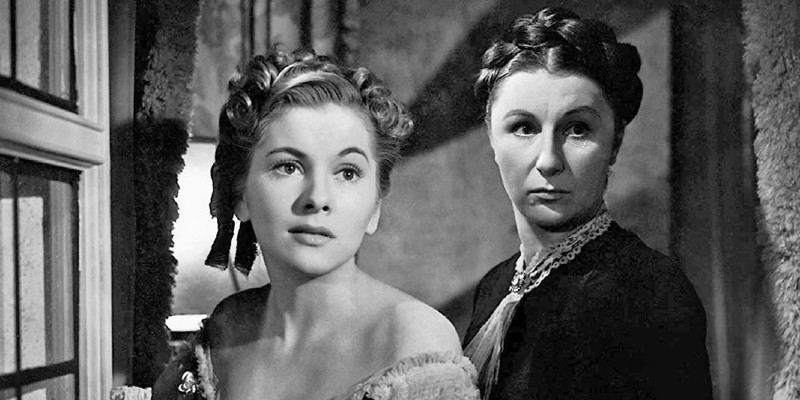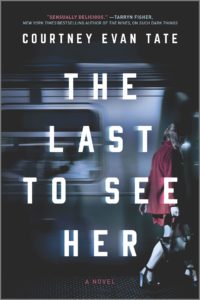While I was participating in a Q&A session a few months back, a young adult reader asked me a question that took me aback. She asked, “Are you excited that feminism is finally starting to emerge in literature?”
Surprised, I looked at her, and said, “Feminism has almost always existed in literature, in one way or another. It’s not always blatant. Sometimes, you have to look to find it, but it’s been there for quite a while.”
She disagreed. “But what about Thrillers?” she asked. “If feminism exists in Thrillers, the heroine is always unlikeable.”
Whoa. That put me on my heels for a moment, and we ended up having a lengthy and lively discussion on the topic. She was young, and I couldn’t fault her for her ideas… at one time, I was just like her.
When I was younger, I wasn’t focused on feminism.
I know, I know. I should burn my bra in recompense.
In all honesty, I was more naive than negligent. I assumed that in our “advanced era,” sexism was extinct. Youth often carries with its rose-colored glasses, and the young exist in self-contained bubbles. If I didn’t see it, then it wasn’t happening.
I was wrong, of course, and once I became aware, I was affected by the Baader-Meinhof Phenomenon—and saw evidence of it everywhere. I realized that in our patriarchal society, sexism exists because our culture accepts it as normal. Even in my childhood favorites… the Trixie Belden mystery series, for example. My beloved female sleuth Trixie was often saved by the boy… Jim Frayne, or her older brothers Mart and Brian. I became rapidly disillusioned with the lack of strength in female heroines, and it wasn’t until college, when I studied global literature that I realized that there is strength in the feminine, even when, at times, it isn’t grossly apparent.
For example, in Nana, the novel by French naturalist author Émile Zola (the ninth installment in the Les Rougon-Macquart series), features the rise of a streetwalker into a high-class escort who truly isn’t represented as having any redeeming character. She destroys every man in her path, she acts capriciously, she spends extravagantly, and eventually, she dies from smallpox completely alone. However, she was no meek kitten who bowed under the weight of men. She used men to her advantage, and used them to survive, but she was a woman in and of herself. Written in 1880, it was a stunning revelation at the time that women could use for strategic gain, just as a man could. Long considered the ‘weaker sex’, we’re more associated with maternal emotions, and, while we do have those, we also exhibit the baser instincts as well.
In the roman à clef, The Bell Jar by Sylvia Plath, we follow Esther’s descent into madness, and climactically, her resentment of men’s freedoms. She rebuffed the idea that males never have to worry about getting pregnant, instead, they can ‘misbehave’ as often as they liked without consequence. While in treatment, she was administered medications, and ultimately, the doctor fitted her for a diaphragm, which gave Esther a sense of freedom, and she felt the bell jar she had been trapped under had been lifted. Her ability to get pregnant rested in her own hands.
I brought these two examples up to my young reader, who again pushed the question of, “But what about thrillers?”
“What about Rebecca by Daphne du Maurier?” I threw back at her. “It has the distinction of never being out of print. It’s been made into a couple of screen adaptations, one of which was an Alfred Hitchcock version that I watched with my granddad when I was a child. That was long ago.”
Technically, Rebecca is Gothic fiction, but I whole-heartedly believe that it would fit into the modern genre of Domestic Noir. The main character, the new Mrs. de Winter is taken by her new husband to his family estate where she lives in the shadow of his deceased first wife. Throughout the creepy book, the new Mrs. de Winter grows and develops, and eventually becomes the anchor for her husband after it is revealed that he killed his first wife. She guides him through his incarceration and subsequent investigation, and she single-handedly finds the bit of evidence that would eventually prove his innocence, all while emotionally keeping him stable.
(Sidenote: I recently watched the remake because I have a girl-crush on Lily James.)
“But” the reader persisted. “She was saving her man. That’s not feminism.”
I raised an eyebrow. “Isn’t it? She saved her man, not the other way around. She was a strong female character written in a time where men were the white knights. That’s exactly feminism.”
“But her character isn’t likable. She seemed weak.”
I stared at her. “But she grew. She was dropped into a place where she was surrounded by the ghost and memory of her husband’s first wife. Would you have been perfectly strong from the very beginning?”
I personally feel that characters who are nuanced, like we are in real-life, are the best kind of characters. It’s easy to unconditionally like characters such as Trixie Belden and Nancy Drew because they are blatantly good. They rarely show the darker side of their soul, the side we all have. In domestic noir thrillers, we see the darker, grittier layers of the characters, which is far more realistic.
“Well, what about your own book?” the reader demanded. “You literally wrote about a woman having a mental break-down because her husband had an affair.”
“That’s only the topical level of that storyline, though,” I protested. “Look deeper.”
“The storyline wasn’t real life. A strong woman wouldn’t react like that.”
I leveled a gaze at her. “Are you married?”
“No.”
“Have you ever been in a long-term relationship, where you put your utmost trust in your partner, only to realize that he betrayed you in the most intimate of ways?”
She stayed silent.
“Look, the beauty in books like these is that you can examine situations that you have never experienced, and honestly, I do hope you never personally experience infidelity. It’s ugly, and it might make you think differently about how you might react. In Mine, I deconstructed the typical storyline of a spousal affair, and I spun it into a revenge fantasy, exploring the darker side of one’s mind. I took the normal, cliché ‘other woman’, and pitted her against the wronged wife. I took a subject that is largely considered in a binary, black and white way, and revealed all of the shades of gray. The wife, while she had a temporary mental break from the pain, literally kidnapped the mistress in order to take control of her circumstances, and in the end, they both decided that he wasn’t worth all that they went through for him. That’s feminism, my dear.”
“But she wasn’t likable,” the reader argued.
“That’s debatable, but she doesn’t have to be,” I answered. “Are people always likable? In every moment? I didn’t like the character Amy in Gone Girl, or Rachel in The Girl on the Train. But that doesn’t detract from the fact that these books have feministic themes and that the storylines were fantastic. Are men always likable in excellent books? Heck no. and it’s time that we stop expecting that from women.”
We bickered just a little bit more, in a good-natured way, and we did finally agree that heroines don’t always have to be likable to be a strong female lead. In books, just as in life, sometimes a strong personality also comes across as threatening or unlikeable.
By the end of our conversation, I do think that I relayed my main point: That feminism has existed in literature throughout the ages. At times, you must read between the lines to see it, but it is there.
Gillian Flynn, Paula Hawkins, Ruth Ware… their strong heroines brought feminism in literature back into the spotlight this century, but it existed long before. To think otherwise is simply a misconception.


















